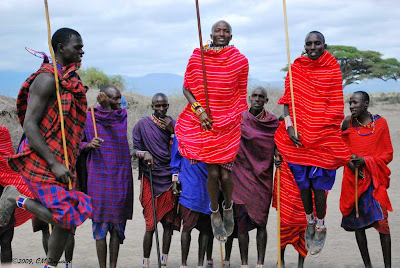About Me:
Kilian Kamota is an accomplished managerial professional with more than ten years experience of working in for-profit and non-profit organizations in Tanzania and the United States. His background includes expertise in multi–unit operations management, multi-million dollar P&L management, project planning & development, facility management, customer relations & satisfaction, human resources management, vendor sourcing & negotiation, risk management & inventory control, as well as food, labor and marketing cost control. Currently, Kilian work as an Assistant Manager for a well-established financial institution. Before joining this financial institution, Kilian worked as a banking Officer at Keybank Headquarters in Cleveland, Ohio. Keybank is one of the largest banks in the United States with approximately $87 billion of assets, 1,068 full service branches and a network of 1,620 ATMs. Kilian has also worked a senior accountant for Eliza Bryant Village NGO in Cleveland, Ohio between 2009 and 2011. Kilian has a Bachelor degree in Accounting and a Masters of Business Administration degree from Walsh University in North Canton, Ohio.
Kilian is a seasoned manager and a transformational leader who believes that organizations do not exists to make money but to serve their clients, employees and stakeholders and meet their needs. Profits and financial gains should always be secondary to service and excellence. Kilian leadership experience have created a passion for surpassing financial and service objectives via a combination of world class service delivery, lean operating methods, renewed marketing directions, and incentive driven rewards for team achievement. Kilian derive genuine pleasure from transforming high-potential staff into outstanding leaders while demonstrating the creativity critical to financial and operational success. Kilian understands how to and the importance of leadership succession plan – how to train, prepare and transform employees into future managers and leaders. Kilian is a charismatic and creative leader who knows how to utilize the art of differential diagnosis to analyze different challenges in order to come up with relevant solutions. He has creative leadership skills with an uncanny ability to see things from a different perspective and come up with fresh, innovative thinking and new ideas to respond to new organization challenges. Kilian is a disciplined man of character who understand that leadership is about skills and character. Skills are what leaders do while character is who the leader is. Character is the foundation of a leader. A disciplined and hardworking leader will create a disciplined and hardworking team. A disorganized and incompetent leader will create a disorganized and incompetent team. Kilian understands the difference between leading and managing and is flexible enough to know when to manage and when to lead. Kilian will not only become a key team player in the organization but also an asset that appreciate in value with time and an important part of the future of the organization.
Kilian believes that leadership is paramount when it comes to organizational efficiency and economic development, and is currently conducting a thorough comparative research of different leadership paradigms in order to draw lessons that can be utilized to help nurture new approaches to leadership and governance. Kilian has written several articles on areas of leadership, management and governance and is currently writing a book called Tanzania: The Next 50 Years. The book explores leadership challenges in Tanzania; and the type of leadership that is required, in the next 50 years, to lead Tanzanians to reach their new objectives.




















